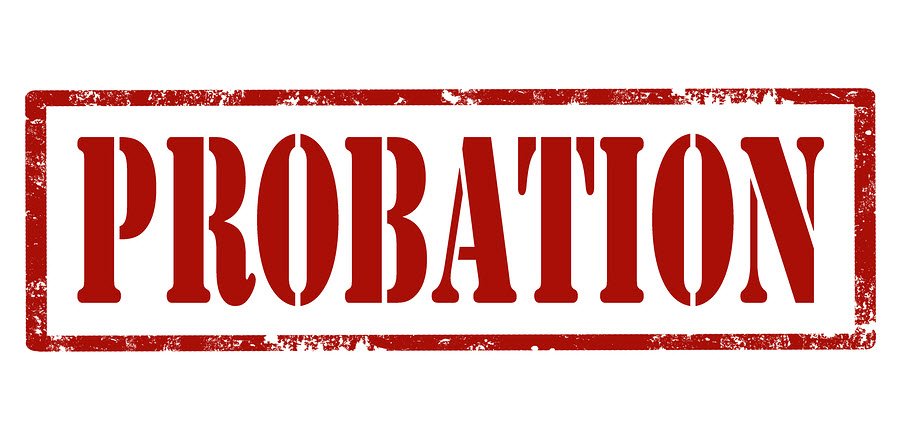Now you’ve got criminal charges hanging over your head, you may have lost your job because of the arrest, and the sobering reality of a possible prison sentence consumes your every waking moment.
Walking into your criminal defense lawyer’s office for the first time, you are thinking, “What do I want?”
If I were in your shoes, I would want my case to be dismissed. Fast. If that’s not possible, I want to win my case at trial and go home a free man. But, what happens when your attorney investigates your case and discovers your videotaped confession? And then your best witness tells your lawyer’s investigator that they are going to testify against you?
When your back is to the wall, the evidence is overwhelming, and you committed the crime, probation may be an option in some cases.
What is Probation in South Carolina?
What Does Probation Mean?
If the Court places you on probation, that means:
- You plead guilty and admit the allegations against you.
- You waive your constitutional rights – your right to a trial, to proof beyond a reasonable doubt, to cross examine the state’s witnesses, to call your own witnesses, to remain silent, and to testify in your defense.
- You waive any defenses that you may have had in your case.
- You are sentenced to a prison sentence.
- Your prison sentence is “suspended,” and you are allowed to remain free as long as you comply with the conditions of your probation.
How do I Get Probation in My Case?
In most cases, in SC state courts, whether or not you get probation is up to the prosecutor.
In most cases, plea negotiations happen before you plead guilty. During the plea hearing, the judge will ask the prosecutor if there are any negotiations or recommendations. There are three possibilities:
- The prosecutor can recommend a sentence that you agreed to before the hearing. It could be a probationary sentence, a prison sentence, a fine, or any combination of these. Although the court is not required to follow the recommendation, they usually do – judges understand that the attorneys have lived with the case for months or even years, while the judge has only listened to a five-minute synopsis from the incident report.
- Your attorney and the prosecutor agree to a negotiated sentence prior to the hearing. This is less common and some judges will not agree to it. When the sentence is negotiated, the court can approve the negotiated sentence or reject the plea, but they will not change the sentence.
- You can plead guilty without recommendation. This means that the judge will place you on probation, sentence you to prison, or give whatever sentence the judge thinks is appropriate for the facts of your case.
How Likely am I to Get Probation?
Prosecutors are more likely to offer probation, or judges to order it in a plea without recommendation, if:
- You are a first-time offender
- The crime is a minor offense or non-violent.
- Your attorney has investigated, documented, and presented effective mitigation materials to the prosecutor and court.
- It is a victimless crime or the victim agrees to probation.
- You are pleading to an offense that is eligible for probation.
What Offenses are Eligible for Probation?
In South Carolina, you cannot be placed on probation for a misdemeanor offense in the magistrate or municipal courts. For example, you cannot be placed on probation for:
- Driving under the influence (DUI) first offense.
- Breach of peace.
- Petit larceny.
- Criminal domestic violence (CDV) first offense.
- Malicious injury to personal property.
- Public disorderly conduct.
- Receiving stolen goods < $2000.
- Reckless driving.
- Shoplifting < $2000.
There are also many more serious offenses that are not eligible for probation like murder, criminal sexual conduct with a minor first degree, or armed robbery.
For many offenses, you have to look at the text of the statute to determine whether probation is a possibility – some will say “no part of the sentence may be suspended” which means you will go to prison if you are convicted. Your criminal defense attorney will be able to tell you whether your charges are eligible for probation.
Can’t My Attorney Just Help Me Get Probation in My Case?
You decide what your goals are in your case. Your attorney’s job is to help you get there if your goals are reasonable and ethical.
In a criminal case, however, your attorney’s job is also to win your case if possible. To effectively represent any client charged with a criminal offense, we have to do an independent investigation, obtain all evidence in the case, and prepare the case for trial. We can do this on dual tracks – on the one hand, we gather mitigation, present it to your prosecutor, and negotiate with the prosecutor to get the recommendation that you want. On the other hand, we also prepare for trial because…
What happens when the prosecutor does not offer you the recommendation that you want? In the end, if your case is not dismissed, you will be faced with the choice of accepting a final offer or taking your case to a jury.
Myrtle Beach Criminal Defense Lawyer at Coastal Law, LLC
Your Conway, SC criminal defense attorney at Coastal Law, LLC will help you to determine whether you are eligible for probation and what you will need to do to make it happen. We will get your case dismissed or take your case to trial if the prosecutor does not make a plea offer that you can agree to.
Schedule a free, confidential consultation to discuss the facts of your case by calling (843) 488-5000 or filling out our online form.



